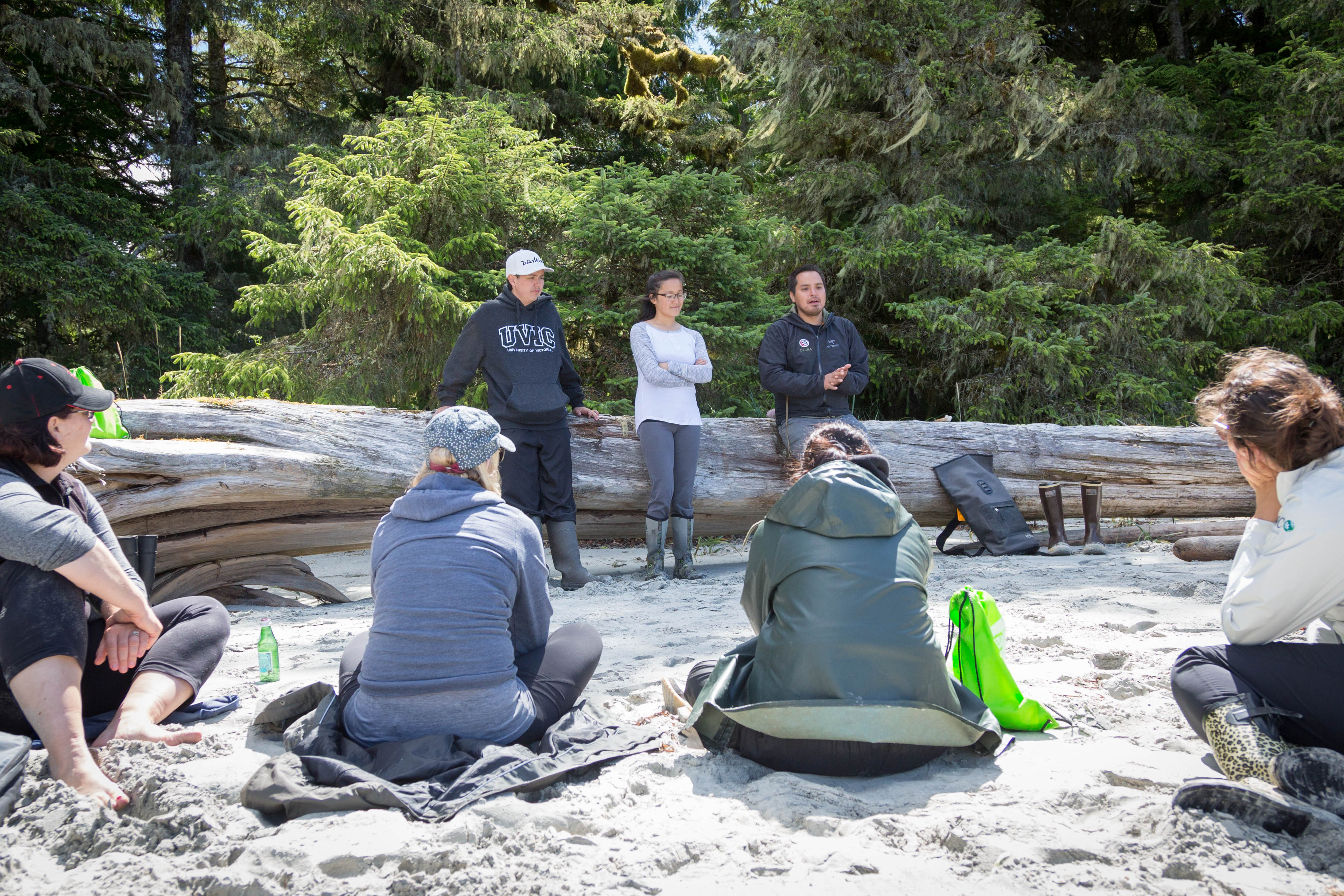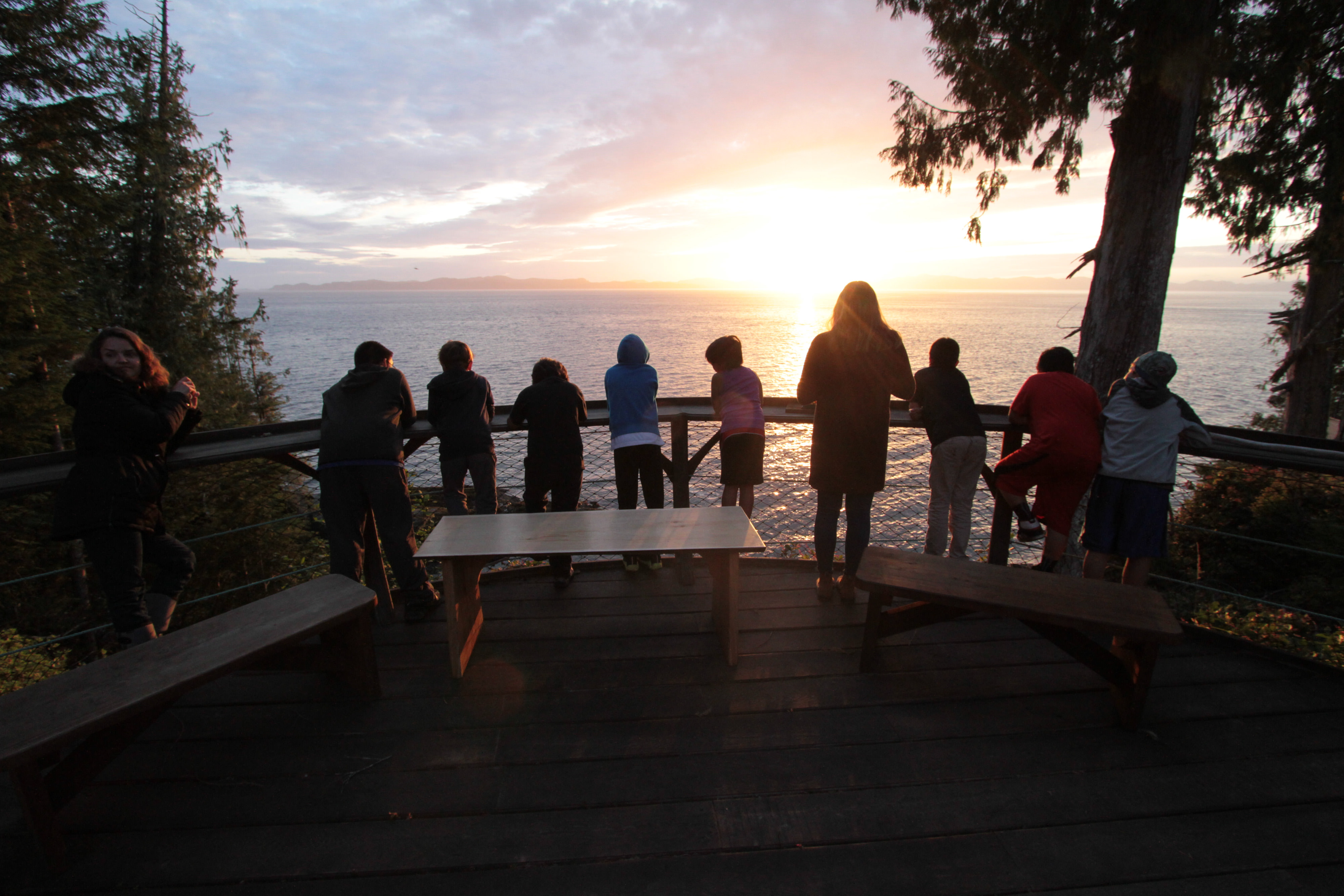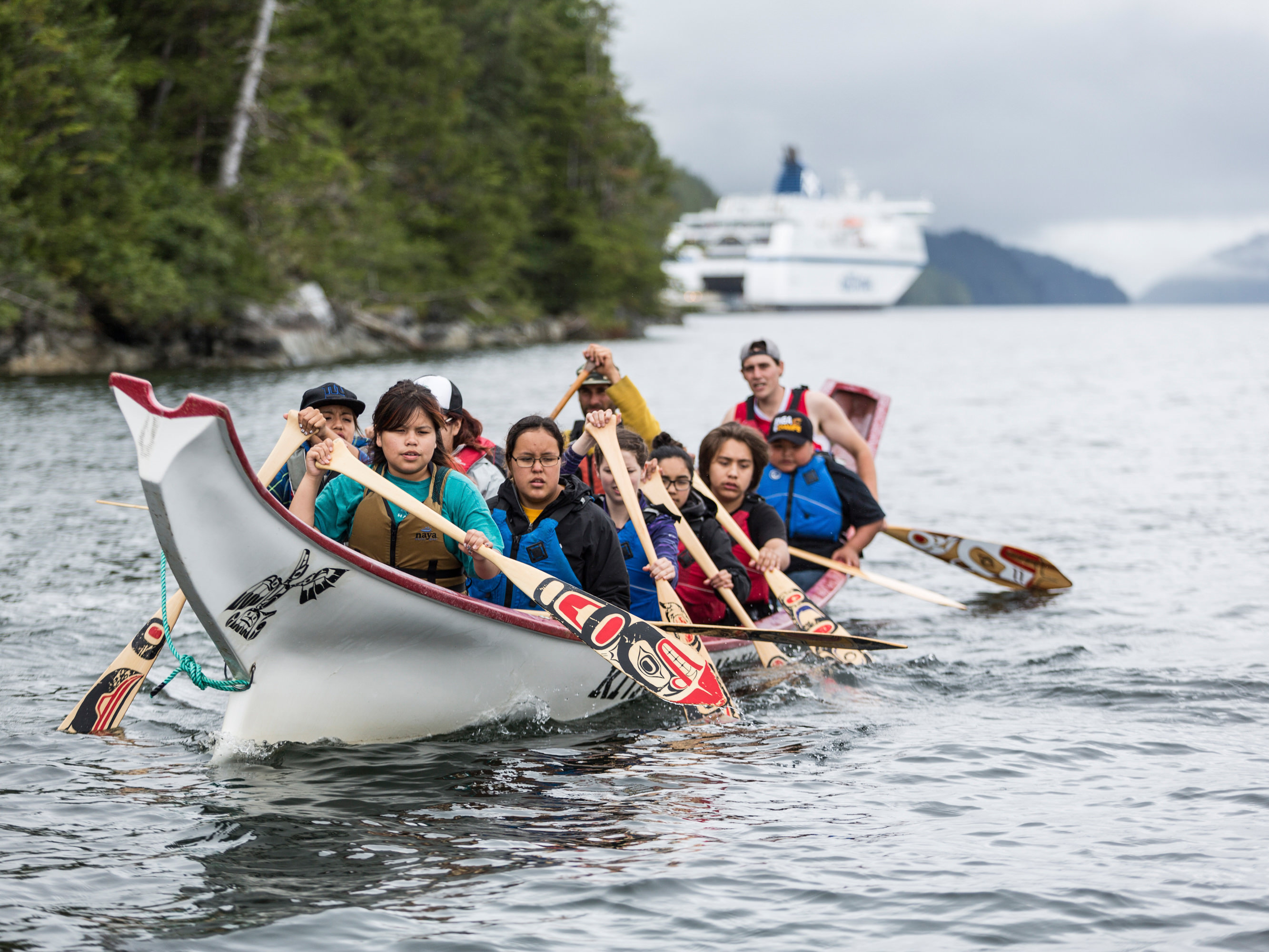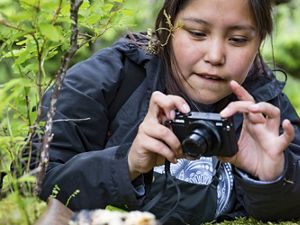The Next Generation of Indigenous Leaders
We support community-led Indigenous youth programs across Canada.
Our Goal
We support Emerging Leaders programs that connect Indigenous youth to who they are and where they come from. These programs strengthen connections between youth and their territories, cultures and communities and support them in developing the confidence and skills necessary to become the future stewards of their lands and waters and leaders of their communities.
When we asked our Indigenous partners how we could best support them, their resounding answer was investing in youth.
Our Emerging Leaders initiative is a key piece of our organizational priority to support Indigenous authority. The initiative does this in two ways:
- Enhancing Indigenous Stewardship Capacity
- Building and Sustaining Indigenous Leadership
By Communities, For Communities
The youth programs we support are designed, led, and championed by the Indigenous communities they are meant to serve. This model allows programs to reflect unique cultures and identities, respond to local challenges, and adapt to community-specific factors.
Emerging Leaders programs also catalyze broader change. Many communities report that these programs contribute to health and well-being and result in educational outcomes. They also foster cultural resurgence by placing added value on community knowledge-holders, strengthening land- and marine-based cultural practices and creating opportunities for traditional knowledge to be shared across generations.
How We Support Emerging Leaders Programs
-

Youth On the Land Opportunities (YOLO) Community Network
We support the YOLO network, which offers opportunities for connection among on-the-land program coordinators and a library of tools to support communities in establishing, running and expanding their own on-the-land programs for Indigenous youth. View the YOLO Website
-

Facilitation Support
Reconnecting Indigenous youth to traditional roles as land stewards is a critical conservation investment. We offer facilitation support to communities as they plan and evaluate these programs. Read How We've Supported Emerging Leaders in the Great Bear Rainforest
-

Learning Exchanges
Connecting students and leaders is critical for a youth program's long-term success. To build these connections, Nature United supports virtual learning opportunities and in-person exchanges.
-
Sustainable Funding
We work with partners to create resilient, diversified and secure funding models for Emerging Leaders programs that fit their community’s needs and context. See How We Supported an Indigenous Youth Program in Thaidene Nëné
-

Making the Case for Support
Our program evaluation found that 70% more youth now visit culturally important places within their territories thanks to the SEAS youth program.
The Types of Programming We Support






Launched with support from our global affiliate in 2009, Supporting Emerging Aboriginal Stewards (SEAS) is running in three communities on the B.C. coast — Heiltsuk, Kitasoo Xai'xais and Nuxalk First Nations. SEAS school programs comprise classroom and field trip activities that connect youth with the lands, waters, seasonal harvest cycles and cultures of their traditional territories. Summer internships provide older students with opportunities for immersive hands-on experience in stewardship roles.
Working collaboratively with Nature United, each community partner develops a program uniquely suited to the community's vision for engaging youth in stewardship education and practice. Programs integrate traditional and cultural knowledge with western science approaches, and students learn directly from a diverse group of knowledge keepers, scientists, elders, harvesters, resource managers and other experts.
"The Knowledge is Already Inside Them"
In Kitasoo Xai'xais, an Emerging Leaders program is connecting young people with the land
Read NowThrough SEAS, students witness the salmon life cycle by visiting a river during spawning time, understand wildlife safety and ecology, and harvest and prepare traditional plant medicines. Youth visit important places in their territories, harvest traditional foods to share with elders and families, and connect with the natural environment through immersive experiences, including multi-day trips.
To complement school-based programs, non-profit organizations and band councils offer summer internships so high school students can work alongside professionals in their traditional territory and complete valuable practical training. Interns learn to be caretakers of their territories while mentoring with natural resource staff, guides and scientists.
Manitoba
Misipawistik Pimastisimeskanaw
Misipawistik Cree Nation’s youth program Misipawistik Pimastisimeskanaw builds on 30 years of culture camps and on-the-land programming in our territory on the shores of Lake Winnipeg. Our program connects youth to traditional practices, teaches the Cree language and builds intergenerational connections. MCN would like to thank and acknowledge the many supporters and funders of this program.
Northwest Territories
Ni Hat'ni Dene Rangers

In Thaidene Nëné, the Ni Hat'ni Dene Rangers are the watchers of the land. They practice a traditional subsistence lifestyle, maintaining the integrity of cultural sites, conducting environmental monitoring, and interacting with visitors. They also work to share cultural knowledge with young people in the community through an Emerging Leaders program supported by Nature United.
Each summer, senior rangers are paired with interns who are hired to spend time on the land and water. Youth learn about navigation, harvesting, reading the weather, language, safety—all by doing, which is the Dene way.
The intergenerational transfer of knowledge that occurs through Ni Hat’ni Dene is significant; it ensures Łutsël K’é Dene First Nation's role in the management of Thaidene Nëné continues into the future. Learn more about the Ni Hat'ni Dene at landoftheancestors.ca.
Northwest Territories
Nahidik Research Vessel

In October 2019, the Nahidik research vessel set sail on Tu Nedhe (also known as Great Slave Lake)—the deepest lake in North America and one of the world’s largest freshwater bodies. The crew of scientists also includes five students from nearby Indigenous communities. To make the educational program aboard the Naidik a reality, Nature United collaborated with partners from the Northern Youth Leadership and the Arctic Research Foundation. During the one-week expedition, youth interacted daily with hydrographers, technologists, conservationists, and professional mariners, gaining a new level of understanding about the innerworkings of a ship’s crew.
New voyages are currently being planned carefully, keeping in mind the Territory's and the community's efforts to contain COVID-19.
Northwest Territories
NWT On the Land Collaborative
Nature United is a funding partner for the NWT On The Land Collaborative, which provides centralized access to funding and other resources for on the land programs in the Northwest Territories. In 2019, the On the Land Collaborative helped fund 48 educational, youth programs.
Support Emerging Leaders
We aim to expand the impact of our Emerging Leaders programs by working with new and existing partners to develop or strengthen Indigenous youth on-the-land programs. Learn more about how you can support this effort, including how you can start a program in your community.



